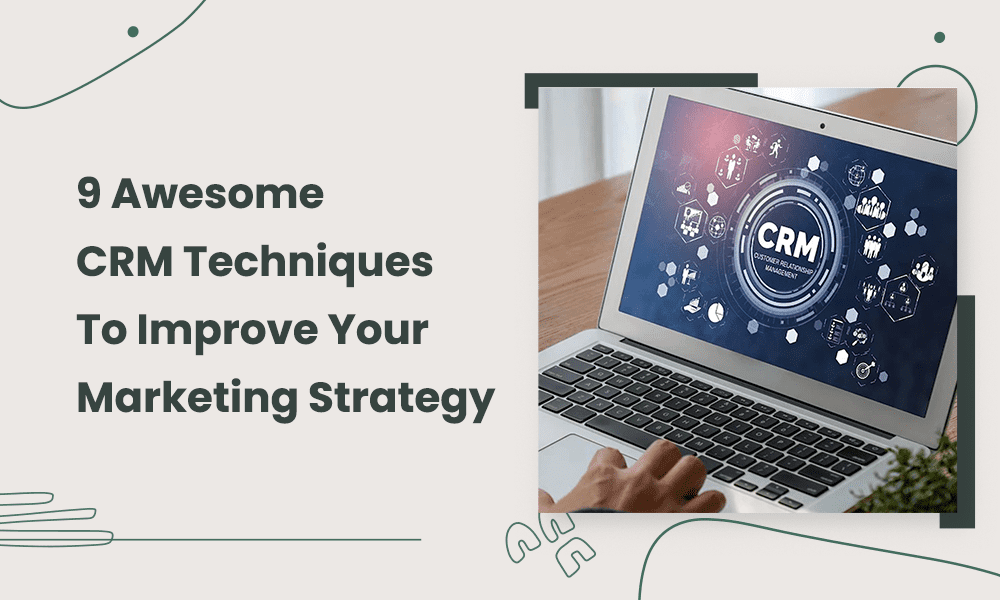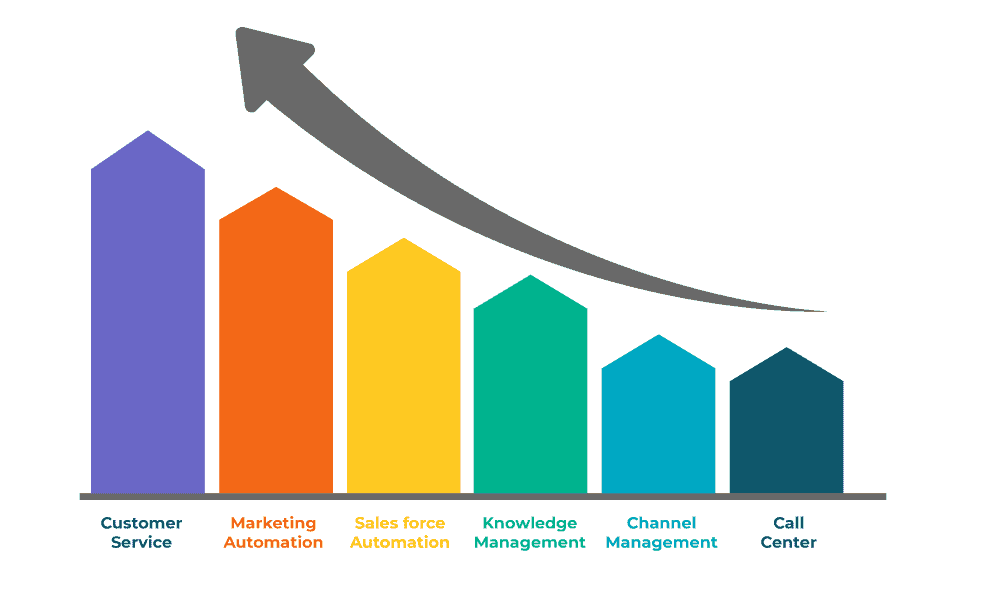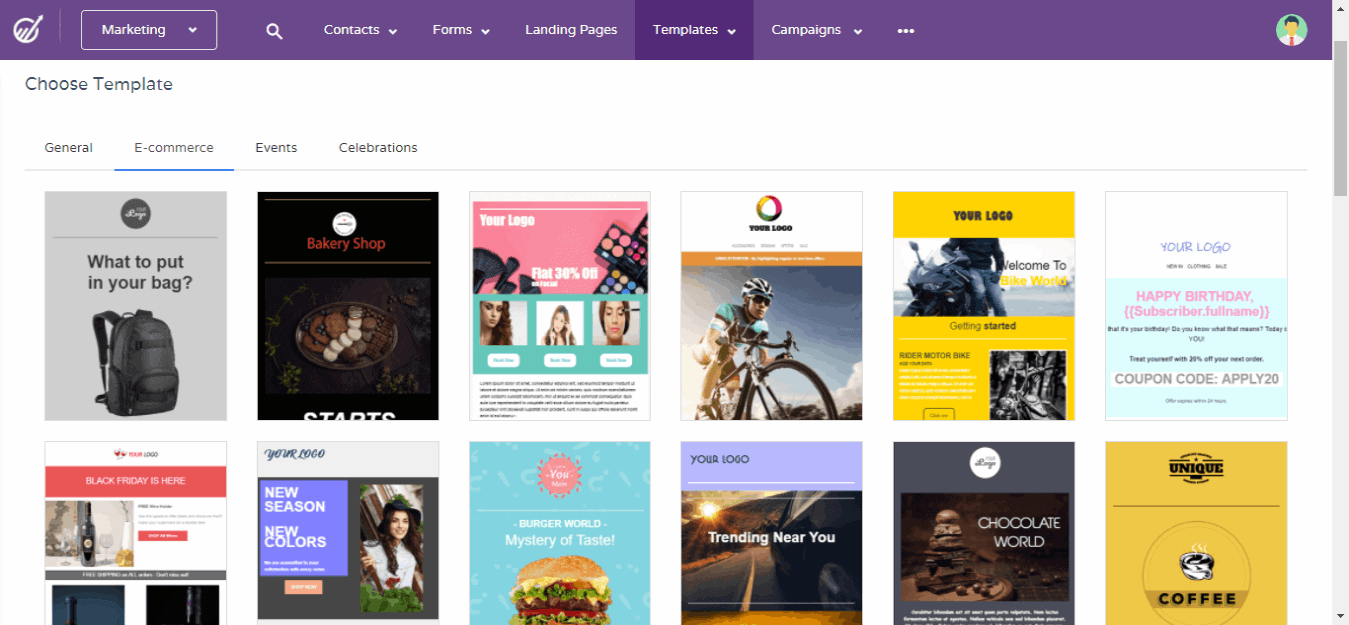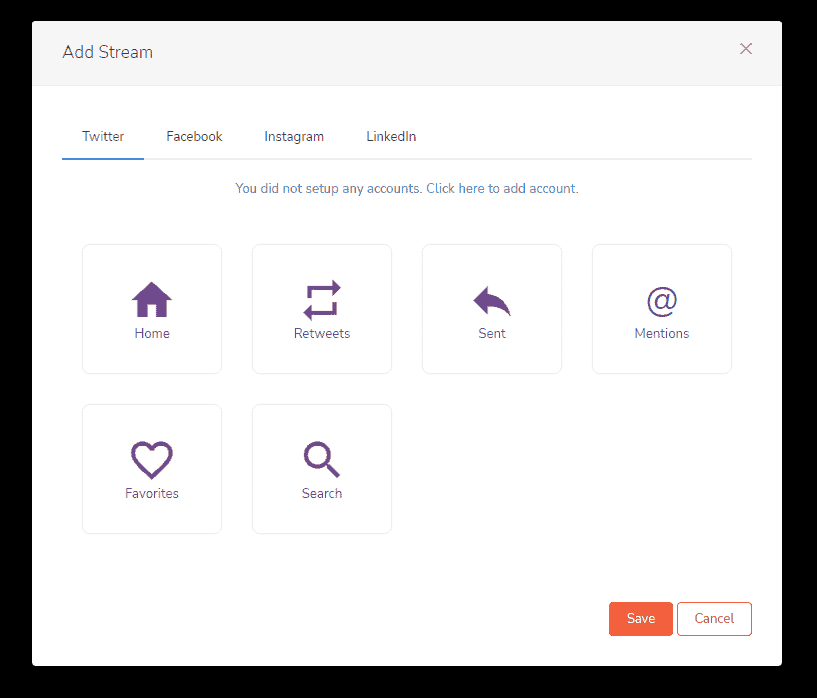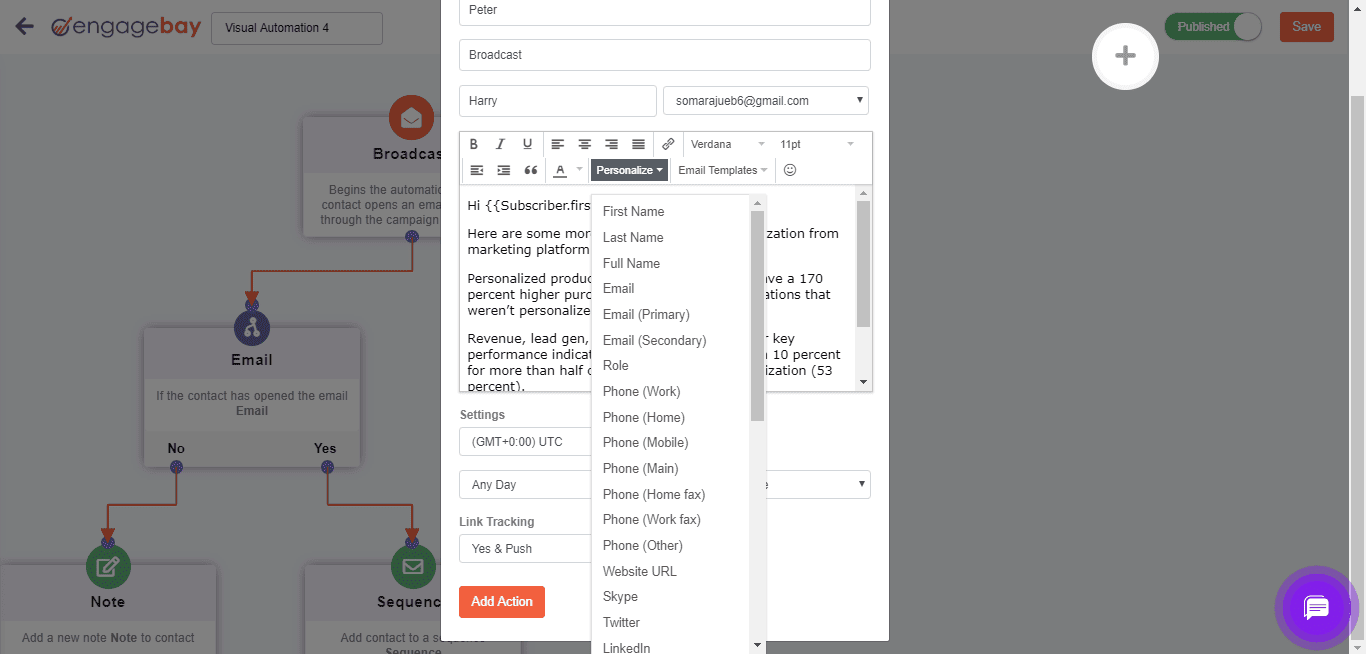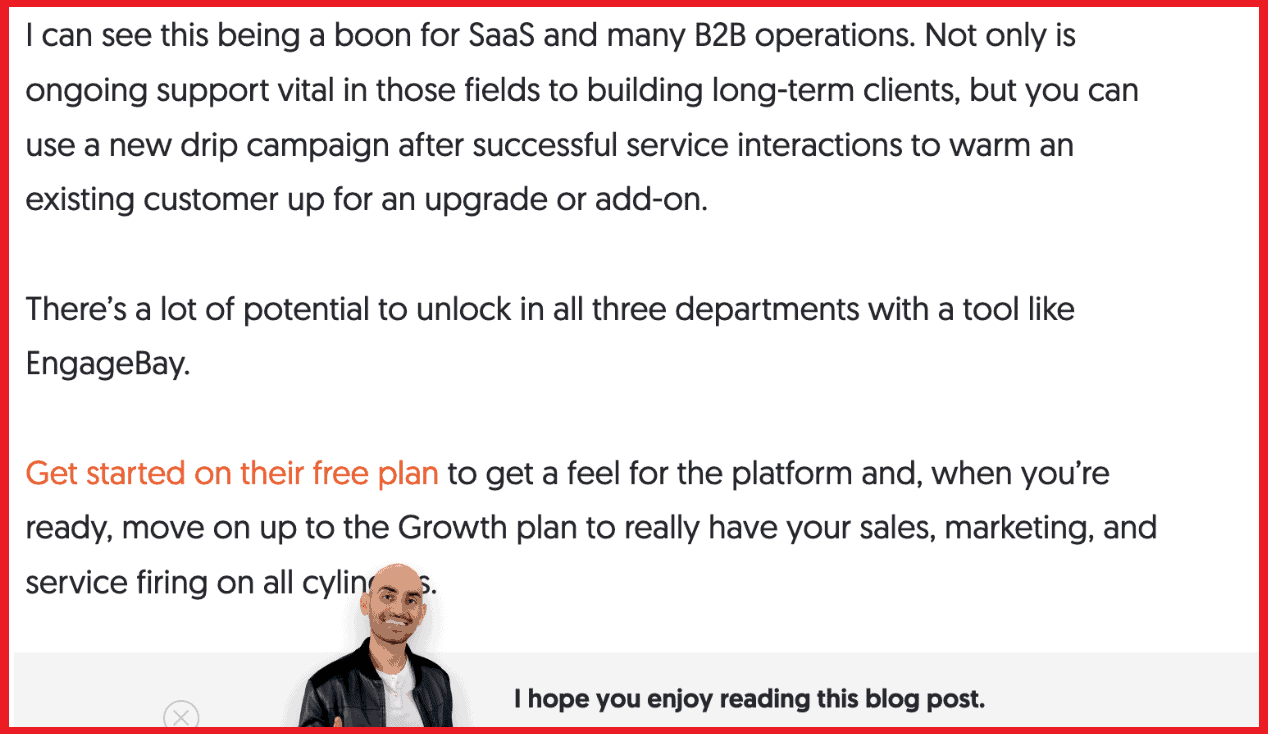A Customer Relationship Management (CRM) software and good CRM techniques can help you build your business, market it efficiently, close more deals quickly, support your customers efficiently, and understand your customers on a much deeper level.
According to SuperOffice, CRM (customer relationship management) has grown to be “the biggest software market in the world.” By 2025, it’s expected that the CRM market will be in the ballpark of $80 billion.
CRM software seems to be the future of business success, from email marketing to mobile tools and everything in between.
This can pave the way to a more unconventional yet powerful way to build and retain your customer base.
That includes call center CRM management, channel management, knowledge management, sales automation, and marketing automation, all with the goal of better sales processes and customer service.
Of course, the end goal is always revenue growth and higher profit margins.
In this blog post, we’ll show you some of the best CRM techniques to maximize your CRM investment.
We’ll talk about:
- How to tailor and automate your email marketing campaigns
- Use social CRM for meaningful interactions
- Segment audiences deeply
- Make the most of search marketing
And a lot more!
Table of Contents
How CRM Helps in Customer Retention
Want to hold on to your customers? Improve the customer experience? Of course, you do! Well then, you need a customer relationship management software. CRM software makes it easy for you to maintain or improve customer satisfaction and, consequently, existing customer retention in the following ways:
- See real-time performance reports for each marketing campaign and sales rep.
- Automate the personalization of all customer outreach and communications.
- Create and implement customer loyalty programs.
- Customize product or service offers based on customer segments, lead scores, and behavior.
- Stay on top of the customer journey from start to finish.
Also read: 9 Business Management Software Hacks for Crazy Productivity
Enhance Your Email Marketing
Want to make your emails more impactful? Check out our beautiful, easy-to-customize HTML email templates. Designed to boost engagement, these templates from EngageBay will help your emails stand out. Just customize the images, headings, and CTAs for your brand, and hit send in a few minutes!
9 CRM Techniques You Must Adopt for Great Marketing ROI
Here are nine of the best CRM techniques to take your CRM implementation and marketing to the next level. Read, execute, and watch your marketing campaigns bloom!
- Tailor & automate your email marketing campaigns
- Use social CRM for more meaningful interactions
- Use cloud CRM on the go
- Engage customers 24/7 with mobile CRM
- Use your CRM for deep segmentation & personalization
- Use CRM for re-engagement and get high retention rates
- Make search marketing and CRM go hand-in-hand
- Use predictive analysis for accurate insights
- Use CRM contact fields for more personalization
#1. Tailor & Automate Your Email Marketing Campaigns
We recently published an article on our blog about how CRM and email marketing intersect.
It’s incredibly easy to integrate it with your email marketing campaigns and drive up their conversion rates if you use a CRM platform.
You can get alerts about when your customers or prospects are opening your emails. It can go even more in-depth than that, and you can see which links, images, subject lines, and CTAs your customers are most receptive to.
These data points let you plan the perfect follow-up campaigns.
Not only that, Customer Relationship Management features can aid you in lead nurturing. This is thanks to the deep segmentation that some of the best CRM software are capable of — we’ll discuss this later in the article.
With customizable email templates that include interactive elements, you’re sending the kind of email content your customers actually want to open and read. Interactive content can be anything from little email mini-games to short videos.
Then, there are marketing automation tools to send tailored emails to all your audience segments. Finally, CRM and email can be integrated to improve your social media marketing.
👉 Boost your marketing success with the ultimate marketing strategy guide 🚀
#2. Use Social CRM for More Meaningful Interactions
Social media and CRM are so intertwined that there’s even a term for combining the two: social CRM.
What exactly is social CRM? It’s a modern way of communication by reaching out to customers via social media channels like Twitter or Facebook.
It can also include email, chat, text, and even phone communication, but social media activity is the star. Since it’s the CRM tool we’re discussing here, your marketing team already has a detailed view of each customer.
That allows communications to be more meaningful and effective. Another element of social CRM that is equally as important as conversions and customer retention is customer support.
After all, to have excellent customer relations, you’ll need to answer customer queries and complaints quickly — making this one of the best CRM techniques.
A Wasted Opportunity
Yet, according to data from the call service firm Yonyx, more than half of the companies (55%) did nothing with the customer feedback they received on their social media accounts.
This is a wasted opportunity. Yonyx adds that a good chunk of customers (17%) use social media for customer support. Social media platforms can also guide purchasing decisions, 20% of the survey respondents said.
Several times, companies ignore social media comments because the feedback is negative. What you must do instead is try and turn around the complaints into resolved customer issues and make a brand image for quick and effective customer service.
Yonyx notes that when customers have a good experience with a company, roughly 70% would tell their family and friends about it.
#3. Use Cloud CRM On The Go
To say that cloud-based data storage is growing is an understatement.
Statistica, a stats resource, found that 1.8 billion people worldwide were on the cloud in 2017. Whether personal or work-related data, they entrusted their information to internet-based servers.
Today, we have what’s known as cloud-based CRM. This is when your CRM software operates on the cloud.
What’s so convenient about cloud CRM? Everything! There’s no need for any installation or setup and no need to free up space on your desktop.
👉 Create and launch successful email campaigns with EngageBay’s all-in-one solution and stunning, free email templates. Don’t miss out — get started today!
Instant Access, Anytime, Anywhere
Your sales team, no matter how big or small, needs only an internet connection to get started with your CRM. Did we mention you can do this anytime and from anywhere?
There’s no need to be tied down to your office computer. Whether on a weekday night or a weekend, you can take your customer relationship management tools. All you need is a stable internet connection, and you can log in from your mobile phone or tablet, home PC or laptop, whichever you like.
As you can imagine, Cloud CRM can be revolutionary for businesses looking for real-time, detailed customer insights.
You can make your contact management efficient with your cloud CRM by keeping customer contact data up-to-date, sending emails to your mailing list virtually anytime, and quickly contacting your sales and marketing teams. This is impossible when traditional software systems are used that can be accessed only from the installed computers.
According to another article on SuperOffice, companies will shell out $127 billion on cloud CRM systems and related services.
Back in 2014, companies were spending about $56.6 billion on cloud-based CRM tools. This shows you how much software as a service (SaaS) has grown in the CRM space.
EngageBay’s free CRM solution helps you organize all your email contacts, track deals and the sales pipeline to grow your sales, and build meaningful and strong customer relationships.
#4. Engage Customers 24/7 with Mobile CRM
Without cloud CRM, we’d never have mobile CRM. After all, with cloud-based CRM, we marketers can easily use our CRM marketing tools.
That includes connecting to the CRM through any device, such as smartphones and tablets. Mobile CRM solutions, like the cloud, allow us to target every customer and engage with them around the clock.
We can take our customer insights and marketing campaigns anywhere with a secure CRM app.
According to Innoppl Technologies, it’s possible to meet more sales goals with mobile CRM solutions. Of the sales reps they surveyed, 65% said they were surpassing their quotas thanks to the use of mobile CRM.
Read also: CRM for Marketing Success: What Tools to Use and How
#5. Use Your CRM for Deep Segmentation & Personalization
As we mentioned in our article about email marketing and CRM, you can segment your audience more deeply than ever before with the software.
The powerful insights a CRM gives you about all your leads and potential customers can help you engage with them at every step of the customer journey. You can turn them into your loyal customers and brand advocates.
You can send marketing emails and other content during the awareness stage, engage and nurture them, and gently nudge them towards purchasing. This is one of the most important customer relationship management techniques.
Here’s an awesome way of using CRM in marketing from HubSpot. Kyle Jepsen, the company’s Academy Sales Professor, had contacted a video company called Vidyard.
What followed was a 51-second, extremely personalized video.
In the above screengrab, you can see that the speaker, Cole, had written Kyle’s name on a whiteboard. That’s not much, you’re probably saying.
According to HubSpot, though, Cole mentioned certain topics he had spoken about with Kyle, as well as the names of some colleagues.
Now, that’s personalization. A CRM can automatically help you with all of this data, and you can personalize all your marketing for a great conversion rate.
Read also: Analytical CRM vs Collaborative CRM vs Operational CRM — A Detailed Guide
#6. Use CRM for Re-engagement and Get High Retention Rates
As a marketer, you’re interested in bringing in new leads and retaining every customer you already have. There are several ways you can do that with CRM software. The first of these is within the software itself.
Instead of digging through databases and contacts lists, it’s there to parse through any time you need to. You can update customer information and even cut unresponsive dead-ends if need be.
You can also re-engage with these lost customers with re-engagement email campaigns. With a combo of CRM data and marketing automation, it’s possible to reach out to former customers without wasting time and resources.
Personalization is another useful way to retain customers. We just talked about personalization, and it’s one of the best ways to engage with customers to reduce churn.
Finally, you can track your customers’ interactions with your teams from the start to the latest update. CRM software gives you a bird’s eye view of many important metrics. Tracking your key metrics is a great customer retention strategy.
Think about who’s opening your emails. Who is clicking open the links you send, and which templates are working best? Who’s making purchases, and how often?
By getting reports on many such data points, you can determine what’s working, what’s not, and which customers can be added to a new list for re-engagement campaigns.
Read also: 5 Best Lifecycle Marketing Software — Pricing, Features Compared
#7. Make Search Marketing and CRM Go Hand-in-Hand
Another one of our recommended CRM marketing techniques and best practices is using CRM with search marketing.
Search marketing is a way of marketing to improve your search engine standing. You can pay for search engine marketing if you must, but CRM software can help even if you don’t.
How?
You already have detailed information and insights about your customers, including their demographics, interests, pain points, and purchasing behavior. Now, you have to use that information for your search marketing. For instance, you can use your demographic customer data to tailor your ads.
This is a great CRM strategy.
Your advertisements can also use geolocation or geofencing, so if a potential customer visits the areas where your stores are located, your online ads appear on their devices. Depending on customer behavior, you can also design specific ads and emails for targeted customer segments.
Do you want to re-engage with abandoned cart users? There can be any number of customer segments like this.
The potential for the blending of search marketing and CRM tools is virtually endless, which is marketing CRM at its best.
While it’s always important to respect the privacy of your leads and customers, if they share their information with you, it makes sense for you to analyze the data and use it to market the right products and services to them.
Read also: 6 No-nonsense Examples of Good Customer Relationship Management
#8. Use Predictive Analysis for Accurate Insights
The predictive analysis abilities of a customer relationship management tool are one of its most valuable assets. We marketers always wish to look into a crystal ball and predict the future. That’s why we make trend lists and predictions for the year ahead.
How accurate those trends and predictions will be is always up for debate.
If you want more accurate, actionable predictions, turn to your SaaS CRM software. Based on real-time updates and the latest customer behavior patterns, it can predict areas in which you need to improve and excel.
CRM data analytics allow for on-target marketing campaigns. They also help you enhance your customer support so you nurture and build a loyal following.

#9. Use CRM Contact Fields for More Personalization
Although we’ve discussed personalization in this article, there is no overstating it. You can never have too much personalization — the more, the better. CRM tools are always evolving to help business owners, and marketers make their emails more intimate and relatable for customers.
One such CRM method you can use is known as CRM contact fields. As this list shows, you can choose a field based on all criteria. That includes:
- How often does the customer use or buy a product
- Their location
- Their job type
- Their clothing size
- Their spouse’s name and their wedding anniversary
- Their birthday
- Their geolocation
The level of personalization you can achieve thanks to CRM is essentially unparalleled.
If you have a couple of minutes, take a look at this video discussing the importance of CRM for marketing:
Conclusion
The uptake of CRM software is only on the rise.
More and more marketers and business owners are learning the value of this software. By gaining deep insights into your customer base, you can convert leads and retain loyal customers, whether running a small business or a large enterprise.
The marketing CRM techniques and best practices shared in this blog post should help you meet your marketing goals.
There are dozens of CRM systems in the market, all promising the best. Some are true to their word, others not so much (oops!).
EngageBay is an excellent software for SMBs, startups, agencies, and solopreneurs. That’s because it is one of the most affordable CRM solutions today.
But don’t let the price tag fool you — EngageBay offers advanced marketing automation tools to get your business running from the ground up.
| CRM technique | How EngageBay helps |
| Tailoring and automating your email marketing campaigns | EngageBay offers advanced customer segmentation, multistep email marketing automation, drip campaigns, and more |
| Using social CRM for better customer interaction | EngageBay offers social media marketing across LinkedIn, Instagram, Facebook, and Twitter (Now X). You also get social listening, post scheduler, and other features. |
| Using cloud-based CRM software | EngageBay is a cloud-based CRM system with Android, iOS, and web applications. |
| Enabling better customer service with mobile CRM | EngageBay offers iOS and Android applications for on-the-go customer service, perfect for your customer service team, field agents, and sales reps. |
| Personalizing your campaigns and communications through deep segmentation | EngageBay offers hyper-personalization, advanced filters, predictive lead scoring, 360-degree customer view, and more. |
| Using CRM for re-engagement and retention | EngageBay offers re-engagement, up-sell, and cross-sell workflows to improve customer retention. |
| Using predictive analysis for accurate insights. | EngageBay offers predictive lead scoring, advanced dashboards with KPIs, web and CRM analytics, and more. |
| Using CRM contact fields for better personalization | EngageBay offers custom contact fields for paid users. |
Don’t just take our word for it, though: even Neil Patel (a top influencer) considers EngageBay as one of the best CRM automation software, calling it “the best CRM for continuing client support.”
To implement your customer relationship management strategies, EngageBay offers four plans — free, Basic, Growth, and Pro. Even the Pro version costs under $80 monthly, and you get unlimited contacts!
When you compare this with some of the other CRM software that cost hundreds or even thousands of dollars a month, you’ll know what we’re talking about 🙂
